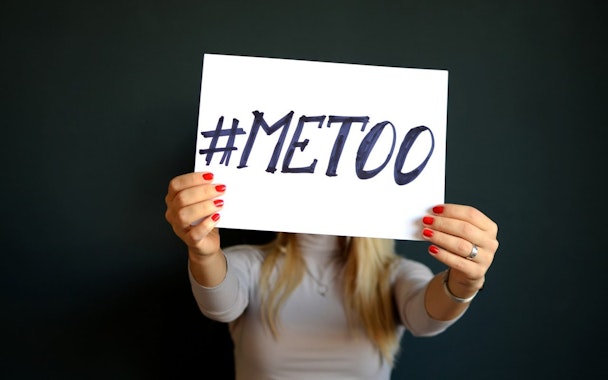Ad execs on what can be done to deal with sexual harassment in the workplace
Amid the fallout from the numerous accusations of sexual assault and harassment under the #MeToo movement, Women in Advertising and Communications London (Wacl) gathered industry executives last week for a frank discussion on what can be done to support those affected and solutions that might go some way to preventing it in the future.

Ad execs on what can be done to deal with sexual harassment in the workplace
On the panel, chaired by Thinkbox’s Tess Alps, were Lucy Barrett, client director, Radiocentre, Lorraine Jennings, director of services and talent, Nabs, Xavier Rees, chief executive at Havas London and Jo Wallace, creative director at JWT. Here’s what emerged.
Defining unwanted behaviour
Understand exactly how sexual harassment is defined before trying to tackle subject proved a complicated starting point. According to The Equality Act 2010, sexual harassment is unwanted behaviour of a sexual nature which:
- violates your dignity
- makes you feel intimidated, degraded or humiliated
- creates a hostile or offensive environment
And you don’t need to have previously objected to someone's behaviour for it to be considered unwanted.
While easy to understand the dictionary definition, what came out of the panel is that it’s sometimes difficult to know if behaviour is unwanted. People need emotional intelligence to read the signals and what may seem acceptable in one situation or to one person may not be acceptable in the next situation or to another. One attendee, for example, said complimenting how someone dressed might be taken as a positive comment to one person and make another feel uncomfortable.
Explicitly telling someone their behaviour is unwanted is the obvious answer but almost unanimously the panel and attendees said it’s simply not that simple.
“Saying ‘Sorry, but I find your behaviour inappropriate’ is a really hard thing to do, especially to someone more senior in a work context, whereas in a bar it may be easy to say no,” said one woman.
This is exacerbated if there is a power imbalance, such as a junior person being harassed by someone senior of there is a client/agency or media agency/media seller relationship.
The panel advised that people must “assume it is unwanted and start from there."
Another observer – a lawyer – said: “If you compliment them every day, have they ever commented on yours? If you hug them every day have they ever done it to you? If you were in prison would you do it to your cellmate? If not, maybe it’s wrong.”
Workplace culture
The importance of the right workplace culture emerged, particularly in setting an environment for open conversations to happen and making it less awkward for people to flag it when something inappropriate may be happening.
However, the role of HR was a sticking point in the discussion. There were anecdotes about victims feeling that HR was not on their side but just ‘part of management’, there to get the situation resolved quickly without any consequences for the perpetrator.
One agency said it was considering the creation of specially trained ambassadors internally who could act as a first port of call in an organisation to talk to instead a formal discussion with a boss or HR.
However, some lawyers present said that a formal process must be followed to be fair to everyone and stressed the importance of having a clear company policy on sexual harassment that’s readily available to staff.
For agency bosses, the wider advice was to take steps to create a company culture where inappropriate behaviour is called out, either right there in a moment or afterwards if someone sees something happening that they don't agree with.
And, perhaps most importantly, creating a diverse workplace should go some way to preventing. The panel spoke of how male-dominated agencies can lead to a ‘bro mentality’ where inappropriate behaviour or comments can be laughed off as “banter”. Though there was a focus on creative departments where there is the biggest gender discrepancy, some in the room felt that a good balance in senior management was more important.
Practical advice if you’ve experienced it in the past, are experiencing it now or have witnessed it
Nabs' Lorraine Jenning’s advice was to find someone to talk to who you trust, or to call the Nabs Advice Line helpline for impartial advice and support. She also urged everyone to read their company policy.
“If you are being harassed, or witness it, keep a diary or list detailing the times and what happened,” she said.
Jennings also said people must keep in mind that complaints of sexual harassment will usually only be considered at an employment tribunal if a claim is made within three months of when the incident took place.
Moving forward, Wacl revealed that it is planning a multi-stakeholder forum that will involve various industry bodies and bring together a wider cross section of the industry, including clients, agencies and media owners to further discuss the issues.

